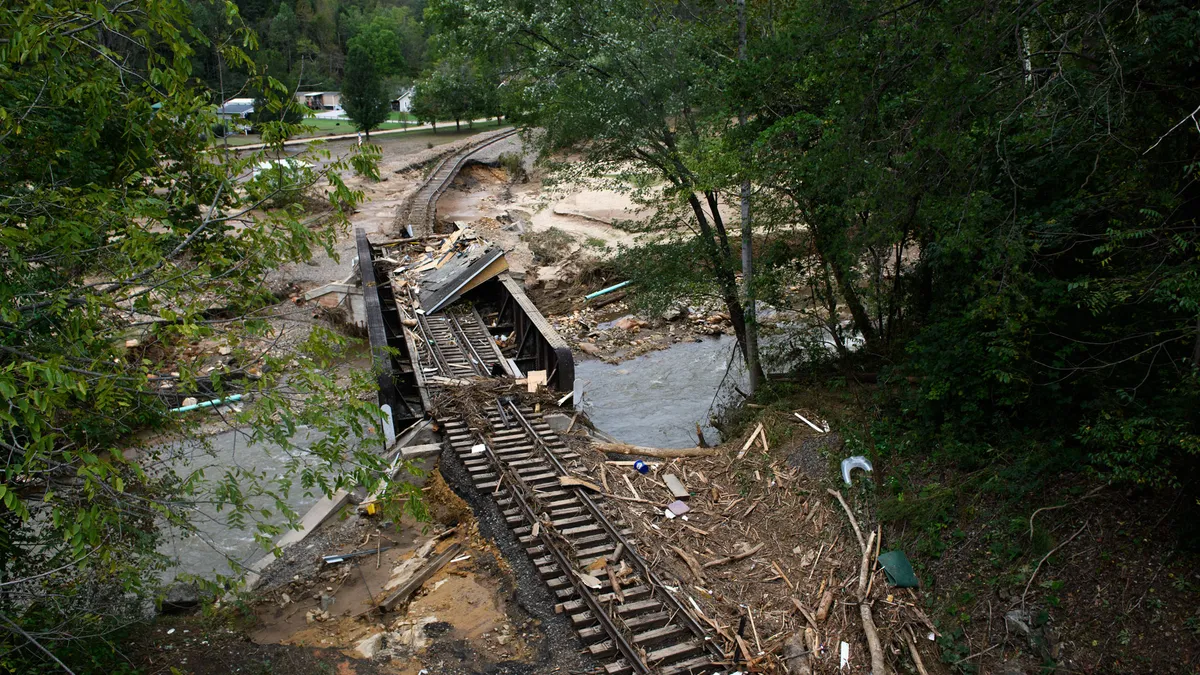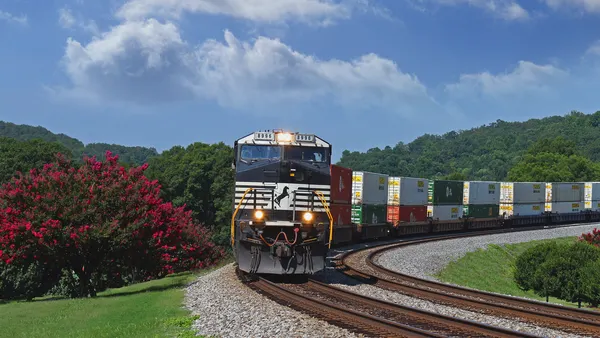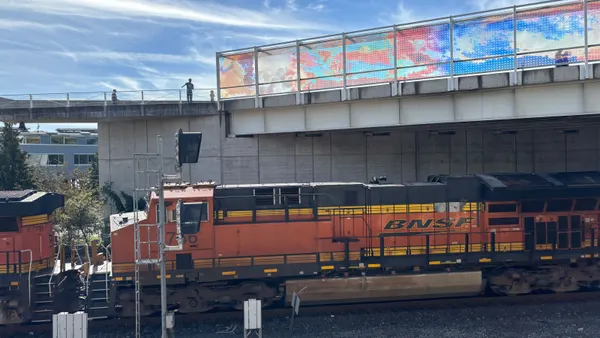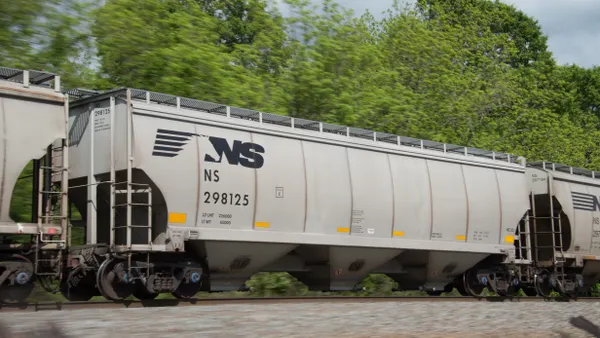Dive Brief:
- Hurricane Helene damaged CSX’s network more than any other storm in the last 30 years besides 2005’s Hurricane Katrina, President and CEO Joe Hinrichs said, citing veteran employees, on an Oct. 16 earnings call.
- The railroad is expecting a $50 million impact on revenue related to the tropical storm in Q4 after enduring an up to $15 million hit in Q3, EVP and CFO Sean Pelkey said. CSX also said the fallout increased dwell times in its network.
- The Q4 impact will feature recovery and rerouting costs of $20 million. The rail line has already commenced rebuilding efforts along miles of track and multiple bridges across its Blue Ridge subdivision.
Dive Insight:
Hurricane Helene pummeled the Southeast, particularly North Carolina, in late September, killing more than 100 people while damaging major highways and railroads.
Although CSX was still evaluating the scale and timing of the capital expenditures needed to fund its post-storm rebuilding efforts at the time of the Q3 earnings call, Pelkey said related costs will likely exceed $200 million, with construction stretching into next year. He also added that the company is still aiming for $2.5 billion in capital expenditures overall this year.

“Obviously, we have some significant capital cost to rebuild the network, but that's people working together with a spirit and a motivation,” Hinrichs said.
Helene was not the only major storm to hit the Southeast this fall, but CSX executives did not mention any impact from Hurricane Milton on the earnings call. However, the railroad did note a modest impact from the three-day International Longshoremen Association strike in early October.
“But those were some lost days that we would expect to recover through the rest of the quarter but it did impact us on a near-term basis,” EVP and Chief Commercial Officer Kevin Boone said.
Prior to the strike, CSX saw cargo shift toward the West Coast, lifting its transcontinental interchange businesses to the East, Boone added.
The railroad has also played a role in mitigating other supply chain disruptions this year, including deploying additional train capacity to combat freight congestion after the collapse of the Francis Scott Key Bridge in late March.















